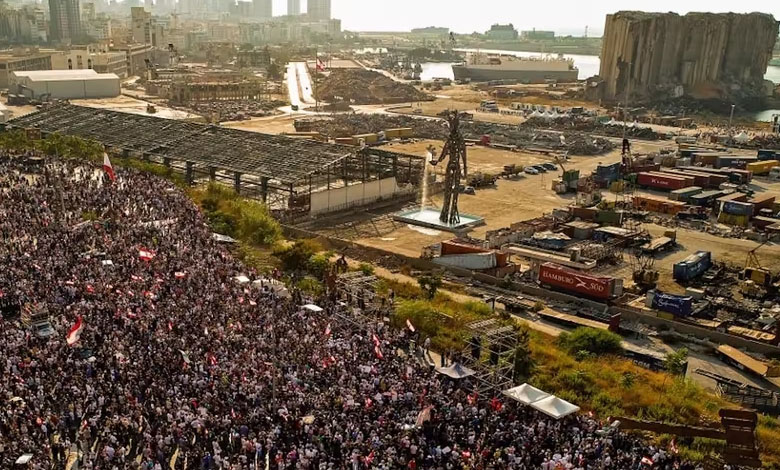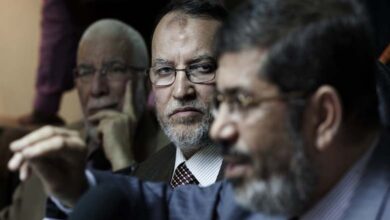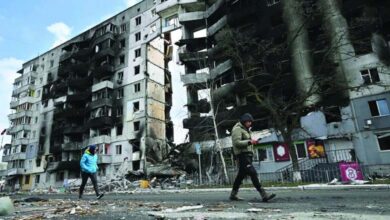Two years after the Beirut port explosion.. How did Hezbollah spoil Lebanon and cause its biggest crisis?

Lebanese commemorated the second anniversary of the Beirut port explosion, which falls on August 4th. Relatives of the victims also planned protest marches, as the country prepares to face the collapse of the “nonsense” silos at the site of the explosion.
The explosion of tons of ammonium nitrate stored at random in the port of Beirut caused the largest non-nuclear explosion in history, killing more than 200 people, injuring thousands and destroying large areas of the capital.
Government silence
The English-language newspaper “Arab Weekly” confirmed that the investigation in the port explosion case was stopped due to political interference, and that no government officials have been held accountable so far for the tragedy of August 4, 2020, which led human rights defenders and some victims’ families to demand an international investigation.
Correspondents reported that many of the badly damaged grain silos that had become a grim symbol of the disaster collapsed last week, and more are about to fall. Pieces of grain actually fell on Thursday. French civil engineer Emmanuel Durand, who monitors the silos with sensors, said: Four more silos could collapse “at any time.”
Blast nightmare
Tatiana Hasrouty, who lost her father in the blast, said: “I hope the fall of the silos will give people the will to fight for justice,” she said, adding that politicians were “doing everything they can to stop the investigation into the explosion in favor of Hezbollah, which is involved in the case.”
And I continued exclusive: “The ruling class kills us every day, if we don’t die in the explosion, we die of hunger, from lack of basic human rights,” she said, adding that power cuts last up to 23 hours a day, the streets are dark at night and traffic signs are out of service.
Lara Khachikian, 51, whose apartment was severely damaged two years ago in the explosion, said she saw the fire and described it as a “nightmare”. “I was scared, and we couldn’t sleep.
Hezbollah’s failure
The massive explosion was a horrific moment in Lebanon’s chaotic history, mired in its worst ever economic crisis. The country is now characterized by power outages, rampant inflation and widespread despair, with Hezbollah accused of being behind the catastrophe that is befalling the country. The ruling class – accused of poor governance, graft and gross negligence – is clinging to power even as the people suffer from a shortage of fuel, medicine and drinking water.
In April, the Lebanese government ordered the demolition of the silos, but this was partially suspended due to objections from relatives of victims who want to keep them as a memorial.
Meanwhile, the investigation is also at risk of collapse, with officials close to Hezbollah downgrading lead investigator Tarek Bitar in a series of lawsuits, the paper reported.
A judicial official close to the investigation said: Judge Bitar’s work has been suspended since December 23rd. He condemned Hezbollah, yesterday (Thursday), what he described as the intensive political and media campaign that lasted for two years, which included false accusations against him, and called for a “fair” investigation regarding the explosion.
Lost justice
UN Secretary-General Antonio Guterres reiterated on Thursday his call for “an impartial, thorough and transparent investigation into the explosion.” Experts and UN groups, including Amnesty International and Human Rights Watch, had earlier renewed an appeal to the UN to send a fact-finding mission.
Rights groups have jointly declared that “it is now clearer than ever that the local investigation cannot bring justice,” while Aya Majzoub of Human Rights Watch said: An international investigation “may be the only hope for millions of Lebanese … to get the answers they deserve about the incident.”












